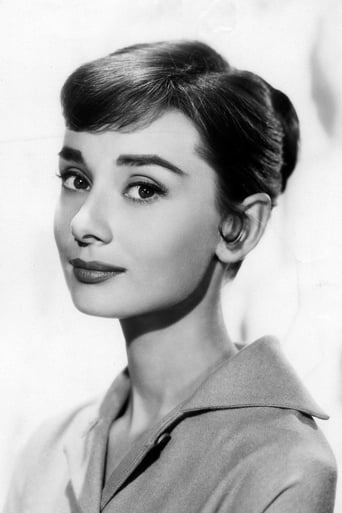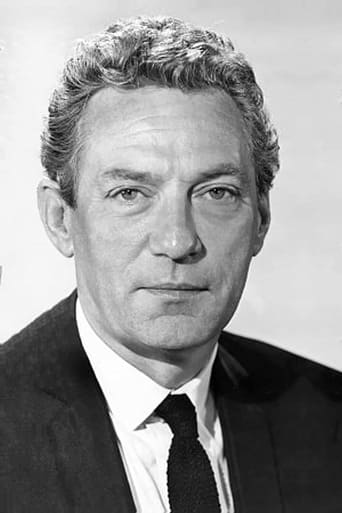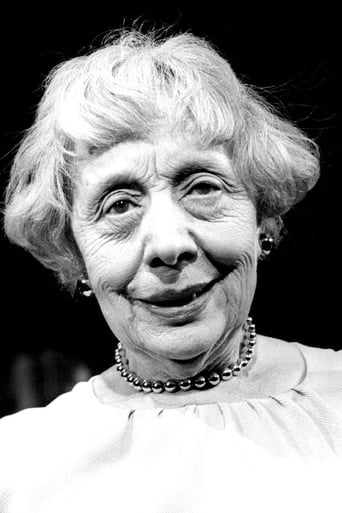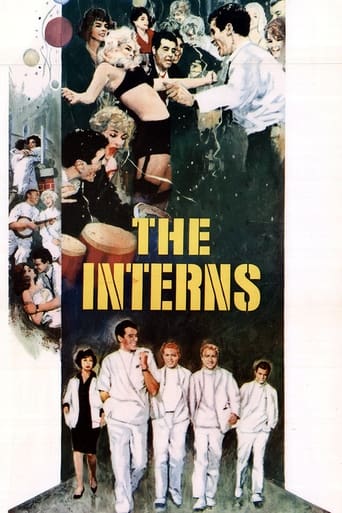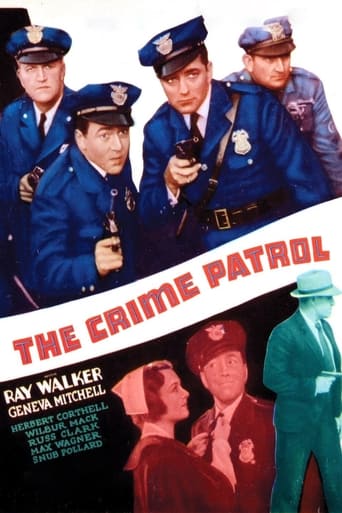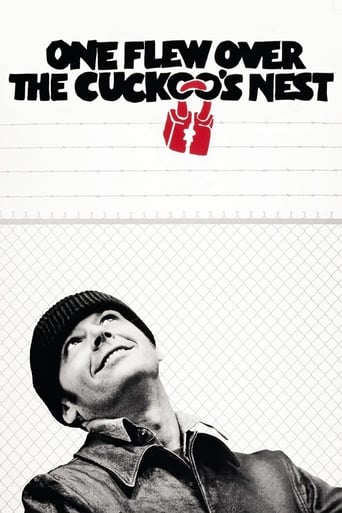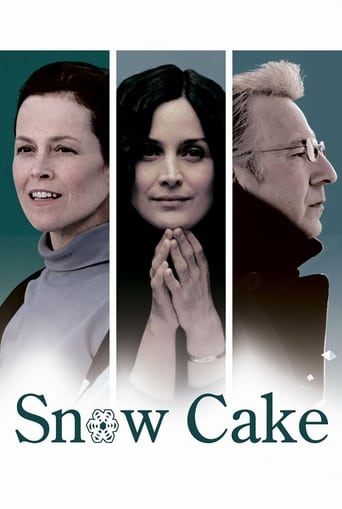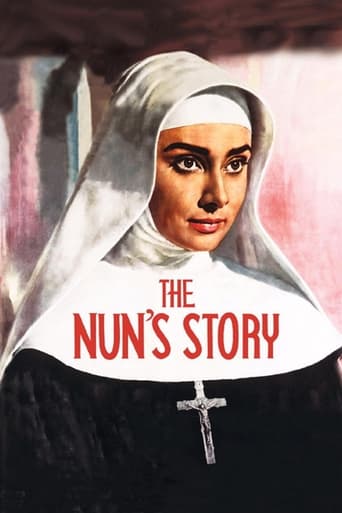
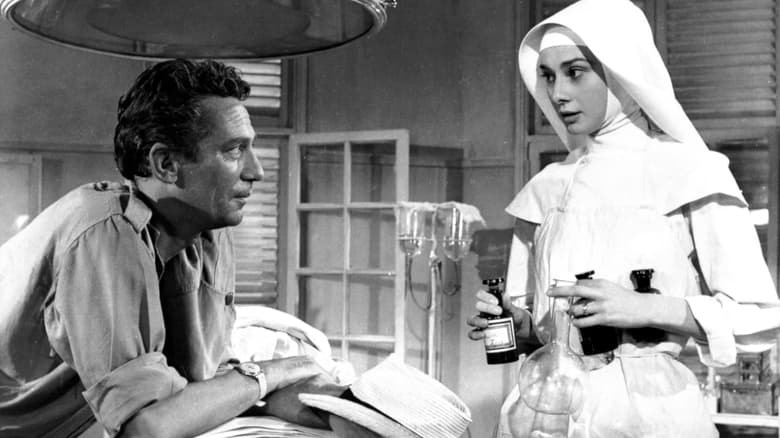
The Nun's Story (1959)
After leaving a wealthy Belgian family to become a nun, Sister Luke struggles with her devotion to her vows during crisis, disappointment, and World War II.
Watch Trailer
Cast
Similar titles



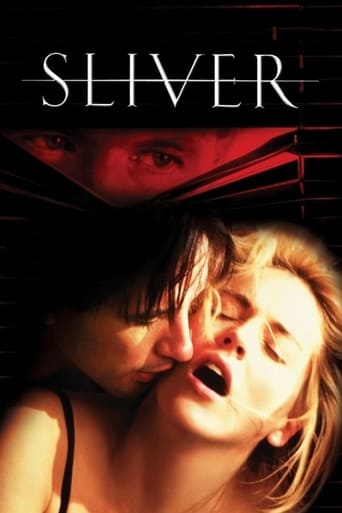

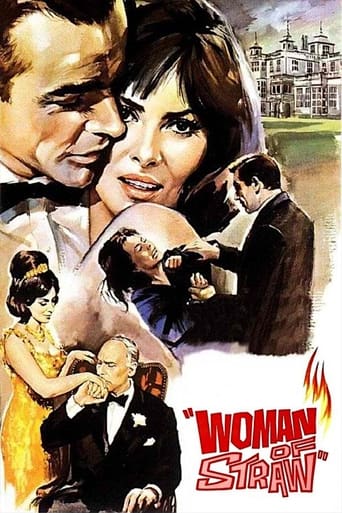
Reviews
Surprisingly incoherent and boring
Sadly Over-hyped
Although it has its amusing moments, in eneral the plot does not convince.
This is a coming of age storyline that you've seen in one form or another for decades. It takes a truly unique voice to make yet another one worth watching.
This Best Picture nominee from 1959 showcases Audrey Hepburn in one of her best performances and one that feels the least like the roles she usually played. Hepburn plays a young woman who is determined to take her vows despite a temperament that everyone close to her realizes isn't suited to the life of a nun. The film isn't exactly critical of religion, but it does acknowledge that devoutness does to a certain extent require an abandonment of independent thinking and in some a voluntary sacrifice of natural gifts to a love of God. Hepburn's character has a gift for science and medicine and would make a gifted nurse. We realize that she could serve Christian ideals more effectively by abandoning her vows and doing what she actually wants to do, but she doesn't see her lack of devoutness as anything other than a failure. She's a fascinating character and one that resonated strongly with me. As someone who isn't religious, I'm constantly mystified by those around me who so narrowly define their world and their place in it in religious terms, and think there's only one way to emulate the ideals our culture labels as Christian and yet are really just a guide to being a decent human being, no matter what your religious beliefs.Peter Finch has a small but effective role as a doctor who is disdainful of the church and contributes to Hepburn's crisis of faith, and Beatrice Straight is also memorable as a reverend mother who has a broader view of what it means to be a nun than many of the others with whom Hepburn comes in contact."The Nun's Story" was nominated for eight Oscars, but unfortunately went up against the "Ben-Hur" behemoth and so won nothing. In addition to Best Picture, it scored nominations for Best Director (Fred Zinnemann), Best Actress (Hepburn), Best Adapted Screenplay (Robert Anderson), Best Color Cinematography (Franz Planer), Best Film Editing (Walter Thompson), Best Dramatic or Comedy Score (Franz Waxman), and Best Sound.Grade: A
Belgium, 1930. Audrey Hepburn, daughter of a famous surgeon (Jagger), joins a convent, undergoes a rigorous training in humiliation, becomes a star pupil at the school for tropical medicine, is sent to what was then called the Belgian Congo where she becomes an indispensable surgical assistant, has an emotional but strictly Platonic brush with the demanding and non-believing doctor (Finch), is sent back to Belgium against her wishes, and resigns from the order.Several scenes seemed especially instructive. First, the whole business of going through boot camp at the nunnery was an excellent example of initiation rituals as they're found around the world. I won't go into details but being given a new name is a common feature of these rites of passage. Gabrielle van der Mal becomes Sister Luke. In our society we have confirmation names, Hebrew names, and nicknames given during service in the Marine Corps.Second, Hepburn is doing first rate work at the school for tropical medicine. She's intelligent, a nurse, and the daughter of a surgeon. But she's breaking some of the rules as well. She doesn't show enough HUMILIATION, so her superior asks her to fail the final exam as evidence that she's rid herself of the sin of false pride. Let's put it this way -- she's supposed to deprive the community of a skilled nurse with a specialty in tropical medicine to prove her subordination to the church.As capitalism developed, is it any wonder that Reformed Churches arose? The sociologist Max Weber made a convincing argument that it was the overthrow of Catholicism, with its vows of poverty and its denunciation of usury, that made capitalism possible. Not that one cause the other, but that they were concordant in their values. If Catholicism taught that being poor was a virtue, Protestantism taught that industry, thrift, and community work was in the service of God.That's a short and incomplete description of my point but please don't argue with me about it. I know what I'm talking about. I've been poor all my life.This is an exceptional movie in many ways. Audrey Hepburn is quite good as Sister Luke. She was always beautiful in a fey way, never sexy, and it fits the role perfectly because you hardly see anything except her facial features, and they're very expressive. She does a fine job.Peter Finch is good too but it's a common role -- the roguish male who challenges the suppressed female to come out of her shell. Viz., Cary Grant and Joan Fontaine in "Suspicion." Franz Waxman's score is carefully done. In a scene in which an almost unrecognizably young Coleen Dewhurst, as a madwoman, attacks Hepburn, the score is anything but bombastic, only plucked strings. Elsewhere the score is modest and appropriate to the occasion. We hear "ora pro nobis" which, when I was a kid at mass, I always heard as "O, Ropra, No Bis," because, not having had Latin, I couldn't identify junctures.Something has to be said about the cast too. What a lot of winners, including Dame Peggy Ashcroft who went from the wife of the suspicious farmer in "The 39 Steps" to the elderly Mrs. Moore in David Lean's "A Passage to India." And the art direction and set dressing. Nothing was every so clean as the nunnery through which Hepburn passes. Every surface is polished, immaculate, so to speak. Every piece of cloth is spotless and freshly pressed. The barracks in MY boot camp were never so clean.Aside from its rather obvious display of the cultish aspects of belonging to an order, it's a fine film, very tastefully directed by Fred Zinnemann -- so tasteful in fact that it's almost impossible to imagine its being made in today's Hollywood.
Director Fred Zinneman and actress Audrey Hepburn conspire to make a very belabored movie about a young woman entering and leaving the religious life in The Nun's Story. The film has a great premise and could have been a lot better. Some of the scenes drag on interminably. Every moment is so punctuated with purpose that the whole thing seems like a tedious affair. And Miss Hepburn is given very inconsequential dialogue. Mostly she nods and says 'yes' over and over in a flat monotone voice. As a Catholic, the story itself makes me unhappy, but as a cinemaddict, the story makes me even unhappier. The real problem is not that a life with God is one for her, but that the way in which the filmmakers tell it is so lifeless and un-entertaining. It's a pensive film about making a long drawn out mistake. The only good thing I can say about it is that Hepburn brings sincerity to the role. But she brought sincerity and good cheer to Roman Holiday and less socially conscious films.
It's wonderful to catch up with classic films that may have lost of their buzz over time. THE NUN'S STORY is a truly perfect work but not one that is mentioned in the same breath as other classic films from great directors like Fred Zinneman and star Audrey Hepburn. This sublime film is subtle to the extreme. Almost flat in fact, depicting the inner struggle of a nun who wishes nothing more than to be a citizen of the world, something the convent does not allow. THE NUN'S STORY takes its time. There is no emotion. No evil. No greatness. Just the struggle to define one self and become the person you must be. Simply stunning, subtle, and perfect!
